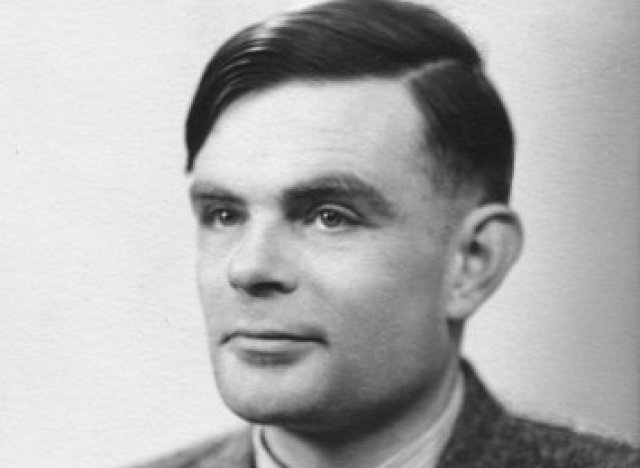Earlier this month I filed Freedom of Information Act requests for any surveillance records on gay genius Alan Turing with the National Archives, the Home Office and the Security Service in the United Kingdom. I've heard back from the first tow agencies, and don't expect a reply from the Security Service since it's exempt from FOIA laws. I filed that request hoping for at least a rejection reply.
Here's what the National Archives said:
This is a list of all the documents held by The National Archives in which Alan Turing's name features in the file title: [Many of those records are posted here. None of them pertain in any way to the surveillance of Turing.]
A search for closed records on the catalogue under 'advanced search' using the keyword 'Turing' yielded no further results. The National Archives does not hold any records of 'security clearances, interviews and surveillance' concerning Turing. It is rare for such material to be transferred to the National Archives; it probably does not survive.
This is from the Home Office:
Thank you for your e-mail of 10th January 2013, in which you ask for information related to the late mathematician Alan Turing. Your request has been handled as a request for information under the Freedom of Information Act 2000.
We have carried out a thorough search and we have established that The Home Office does not hold the information which you have requested. We suggest contacting The National Archives (TNA), a government body that holds files and records which are over 30 years old.
I contacted Maurice Frankel of the Campaign for Freedom of Information in the UK, soliciting his opinion on these replies. He said:
If (contrary to what they say) any files did happen to be held within the Home Office they would then be likely to rely on the exemption in section 23 of the Act, which exempts information obtained directly or indirectly from, or relating to the work of, the Security Service. This exemption is not subject to the Act's public interest test.
If any files had been
transferred by the Security Service to the National Archive they would
be potentially disclosable by the National Archive, because the public
interest test does apply to the section 23 exemption in relation
to 30+ year old records held by the National Archive (but not held by
other authorities).
Turing
is of course a heavily researched figure and it would be surprising if
historians and biographers who have studied his life had not already had
a go at looking for information about any surveillance. If you have
time to look at their work, this could tell you something about material
which they had concluded might still exist somewhere, but which had not
been releasable at the time they did their research and might be worth
having another go at.
Frankel makes an excellent point in the last paragraph. I wrote him that I had searched the web for details about Turing's biographers filing requests for surveillance records, and the only relevant thing I found was a post at John Graham-Cumming's blog. He was responsible for persuading Prime Minister Gordon Brown to posthumously apologize to Turing.
Graham-Cumming in 2009 asked the Security Service for surveillance records, and received an email from them saying anything on Turing they could release was available on their site or at the National Archives site. At the time, nothing was posted at either agency's site.
I'm sharing the replies from the Home Office and National Archives as basic followup to readers, and to put info out on the web that no Turing surveillance records (if they exist and I believe they do considering the intelligence clearances he needed), have been released by the pertinent UK agencies.
One day, I hope such records are open to the public.


No comments:
Post a Comment